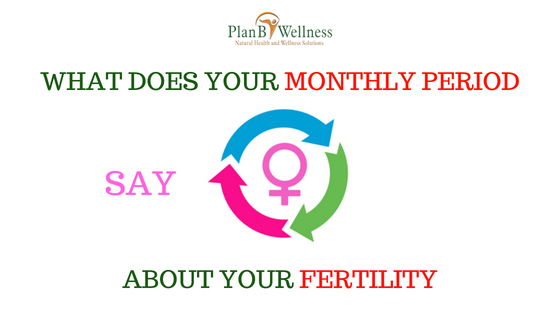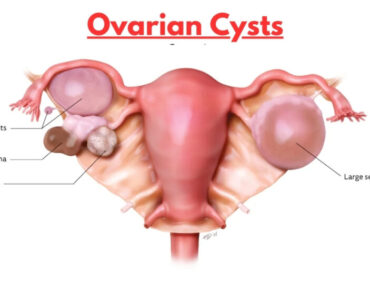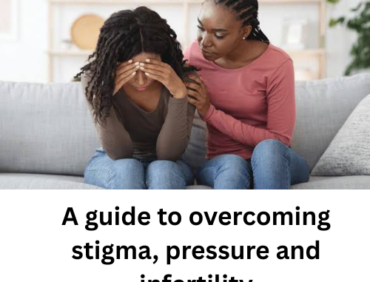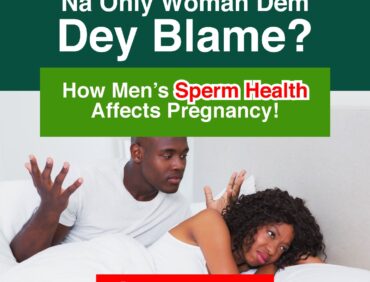As a woman, your monthly period is actually much more than just a mere monthly occurrence, it has the potential to affect your fertility. Thus, when you are having trouble getting pregnant, it’s very important for your physician to gather information about your menstrual cycle in order to help establish an accurate diagnosis and treatment plan.
What is Menstrual Cycle?
The menstrual cycle is a series of changes that a woman’s body goes through each month in which the ovary releases an egg and the uterus prepares for pregnancy. This cycle can be divided into two phases: the follicular phase and the luteal phase and both are explained below;
The Follicular Phase
The first day of your period (or menses) is day 1 of your cycle and the start of the follicular phase. During this time, the brain releases follicle-stimulating hormone (FSH) to stimulate the development of a single dominant follicle that contains one egg. While the follicle matures, it will release oestrogen hormone to stimulate the growth of the uterine lining. Once ovulation begins, the follicular phase has concluded. While this phase averages about 14 days, the length can vary, creating variations in total cycle length.
The Luteal Phase
The luteal phase begins with ovulation and continues until the onset of your period. During this phase, the ovary will release progesterone — a hormone that matures the uterine lining and prepares it for the implantation of an embryo. If pregnancy does not occur, the progesterone level drops and bleeding occurs. This phase can average 14 days also.
Does The Cycle Length Matter?

The length of your menstrual cycle is determined by the number of days from the first day of bleeding to the start of the next period. The length of your cycle—while not on any form of birth control—can be a key indicator of hormonal imbalances and whether or not ovulation is occurring in a regular manner. If ovulation does not occur, pregnancy is not possible.
Normal Menstrual Cycle
A normal menstrual cycle lasts from 21 to 35 days. If you have a normal menstrual cycle, regular ovulation should be occurring and all hormones should be in balance, making natural conception possible.
Short Menstrual Cycle
A short menstrual cycle is anything shorter than 21 days. Shortened cycles can be an indication that the ovaries contain fewer eggs and that menopause may be approaching. As the number of eggs in the ovaries decrease, the brain releases more FSH to stimulate the ovaries to develop a follicle. This results in earlier development of the follicle and earlier ovulation, creating shortened cycles. This can make conception even more difficult.
Long or Irregular Menstrual Cycle
A long menstrual cycle lasts more than 35 days. Longer cycles are an indicator that ovulation is not occurring or at least not occurring in a regular manner. This lack of ovulation is known as anovulation. There are many potential causes of anovulation, such as:
- irregularities with the thyroid gland
- elevations of the hormone prolactin that can disrupt the brain’s ability to communicate with the ovary
- polycystic ovary syndrome (PCOS)
These hormonal imbalances lead to problems with ovulation and fertility and they may also increase the risk of miscarriage.
What Does it Mean if Menstrual Bleeding Lasts More than 7 Days?

The normal length of bleeding for women is 2 to 7 days on the average. Anything longer than 7 days is known as prolonged bleeding. Prolonged bleeding tells your physician that either ovulation is not occurring regularly or that there may be something disrupting the lining of the uterus. There also could be a problem forming blood clots.
Prolonged bleeding can occur if the aforementioned ovulation is not occurring regularly. Additionally, prolonged bleeding can be caused by polyps, fibroids, or infection within the uterus or cervix. In these situations, if an embryo should enter the uterus, implantation can be compromised, resulting in lower pregnancy rates or an increased chance of miscarriage.
Although rare, a problem with blood clotting can also cause prolonged bleeding, which would necessitate an evaluation from a specialist.
What if You Never Menstruate?
If you never menstruate, ovulation is not occurring and conception would be difficult without intervention. This can be common in women who are considered underweight by body mass index (BMI) standards. The body requires a certain level of body fat for menstrual cycles and reproduction to occur. Weight is not the only cause to consider, though.
If an adult woman has never had menstrual bleeding, there may have been a problem with the normal development of the uterus or the vagina. If a woman had menstrual cycles previously, but then stopped, this could be due to a problem with the uterus itself, due to scar tissue inside the uterine cavity or premature menopause. If the uterus has not formed or if menopause has occurred, pregnancy is not possible.
Can You Still Conceive if Your Menstrual Cycle is Not Normal?
Yes, even if you are suffering from abnormal or irregular menstrual cycle, you may still conceive on your own.
However, it may be a little more challenging, especially if you’re trying to determine your most fertile window based on your monthly period.
It is important to realise that there are many situations in which ovulation does not occur, and thus, conception cannot occur naturally.
There are also instances in which scar tissue in the uterine cavity or premature menopause can be factors limiting conception. Despite these factors though, fertility treatment can help you conceive.
When Should You Seek Help?
If you suspect you are not ovulating and/or you’re experiencing abnormal periods, you should seek help from a specialist whenever you are ready to conceive.
Even if you do have a normal menstrual cycle, though, you should seek help from a specialist if you have not conceived in the following time frames:
- if you are under the age of 35 and have been trying for more than 1 year;
- if you are over 35 and have been trying to conceive for 6 months; and
- if you are over 40 and have been trying to conceive for 3 months or less.
Seeking help from the right source will provide you with the answers you’ve been looking for.
If you have any challenge with your menstruation and that’s been delaying conception, then you should quickly read about the Menstrual Disorder Remedy Kit that has helped a lot of women to naturally regulate and normalise their monthly period.
If you need us to help you with a natural remedy for irregular menstruation, ovulation challenges or infertility, do not hesitate to send us an email via consult@planbwellness.com
If you have gained anything from reading this, don’t hesitate to share it with other women too. Put your comments and questions or topics you will like us to write about in the comment box below.
Stay Healthy And Never Give Up!
Plan B Wellness Center
Email – consult@www.planbwellness.com
Twitter – @planbwellness
Instagram – @planbwellness











I have liked the info. I would like to consult about menstrual cycle
Thank you Winne. You can go ahead and send an email to consult@www.planbwellness.com for issues concerning your menstrual cycle.
I will to be enlightened on irregular menstration & conception
Thanks for the write up..My monthly cycle is normal and my ovulation is very light no thick discharge.. hope I’m fine
@Omosalewa,
As explained above, the thickness of the discharge is not the only way to determine whether you are fine or not. If you get the other conditions right, then you should be fine.
@Omosalewa,
As explained above, the thickness of the discharge is not the only way to determine whether you are fine or not. The other conditions need to be considered too.
How can one conceive pls
Dear Tamuno,
Kindly visit http://www.planbwellness.com/female-infertility to see a remedy that can help you conceive fast.
Please I want to concive